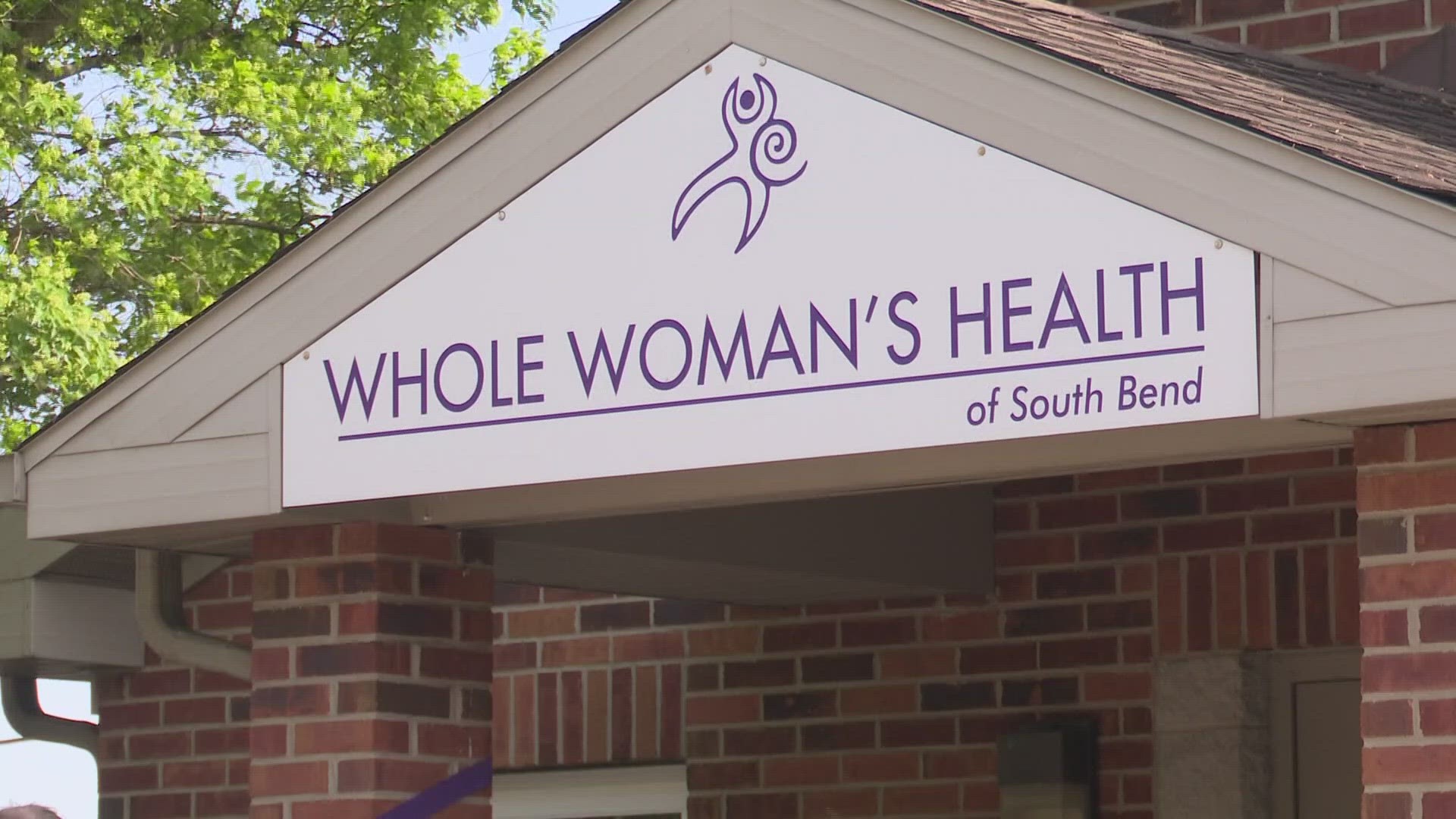SOUTH BEND, Ind. — A northern Indiana abortion clinic will close nearly a year after the state approved a ban on the practice, with “unnecessary” and “politically driven” restrictions on abortions forcing its closure, according to a Monday announcement.
Amy Hagstrom Miller, president of Whole Woman’s Health Alliance, said in the statement that staff has seen more than 1,100 women for medication abortions “in our small but mighty South Bend clinic” since it opened seven years ago.
Staff at Whole Woman’s Health Alliance — which has clinics in Illinois, Maryland, Minnesota, New Mexico and Virginia — will still provide remote services, such as referring patients to other abortion clinics in Indiana or states where abortion is legal. Patients have not been able to physically visit the Indiana clinic since December 2022.
“While we will no longer provide abortions at our South Bend clinic location, our resolve to help Hoosiers is as strong as ever,” Hagstrom Miller said.
The Indiana clinic was one of seven abortion clinics in the state and the sole provider in South Bend, a city close to the Michigan border and north of Indianapolis by approximately 147 miles (about 237 kilometers).
Indiana lawmakers pushed ahead a ban on abortions last year, with the state's Republican governor approving the law in August. The law only permits abortions in cases of rape and incest before 10-weeks post-fertilization; to protect the life and physical health of the woman; or if a fetus is diagnosed with a lethal anomaly.
A judge in September 2022 blocked those restrictions one week after the law went into effect, siding with abortion clinic operators — including Whole Woman's Health — in a lawsuit filed by the American Civil Liberties Union of Indiana.
Abortion clinics would also have lost their licenses under the law, but whether it will go back into effect rests on a decision from the Indiana Supreme Court, which heard oral arguments in the case in January.
Until then, the practice remains legal up to 20 weeks. Clinics like Whole Woman's Health have struggled to remain adequately staffed while navigating the changing laws across the country after the U.S. Supreme Court overturned Roe v. Wade in June 2022.

